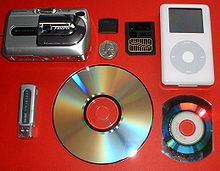

| Part of a series on |
| Forensic science |
|---|
 |
Computer forensics (also known as computer forensic science)[1] is a branch of digital forensic science pertaining to evidence found in computers and digital storage media. The goal of computer forensics is to examine digital media in a forensically sound manner with the aim of identifying, preserving, recovering, analyzing, and presenting facts and opinions about the digital information.
Although it is most often associated with the investigation of a wide variety of computer crime, computer forensics may also be used in civil proceedings. The discipline involves similar techniques and principles to data recovery, but with additional guidelines and practices designed to create a legal audit trail.
Evidence from computer forensics investigations is usually subjected to the same guidelines and practices as other digital evidence. It has been used in a number of high-profile cases and is accepted as reliable within U.S. and European court systems.